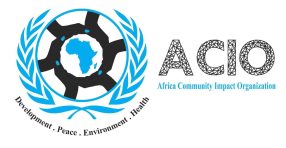Mitigating climate change entails lowering greenhouse gas emissions that are warming our planet. Mitigation strategies include retrofitting buildings to make them more energy efficient; utilizing renewable energy sources such as solar, wind, and small hydro; assisting cities in developing more sustainable modes of transportation such as bus rapid transit, electric vehicles, and biofuels; and promoting more sustainable land and forest uses.
Traditional fuels such as coal and wood are used to meet the basic energy needs of approximately 1.4 billion people worldwide. This is not only bad for the environment; it can also lead to premature deaths of millions of people, especially women and children. Global energy demand is expected to increase more than 50% by 2035, with developing countries growing even faster. All of these new customers require clean energy that is safe for them and the environment. For that reason, Africa Community Impact Organization works to improve Forestry practices include planting new forests, allowing forests to regrow naturally where they have been cut down, and improved forest management. Wetland-related practices focus on conserving and restoring peatlands and coastal wetlands, such as mangroves.

Working with nature to address societal challenges and benefit people, nature, and the environment,
What exactly are natural solutions?
Nature-based solutions harness nature’s power to improve natural ecosystems, biodiversity, and human well-being in order to address major societal issues such as climate change. We work to put these solutions into action, which include a wide range of actions to protect, restore, or sustainably manage landscapes, seascapes, watersheds, and urban areas in order to address issues such as food and water security, climate change, disaster risks, and human health. Examples include restoring wetlands to protect local communities from flood waters and conserving mangrove forests, which serve as fish nurseries and protect nearby homes from storm damage. Nature-based solutions are already in use around the African regions where we work, from protecting salt marshes to restoring forest habitats.
For millennia, indigenous peoples and local communities have relied on nature-based solutions. All solutions must be people-centered, led by communities, and based on traditional and local knowledge. Nature-based solutions must be inclusive, transparent, developed with regard for land rights and local people’s perspectives, and the benefits must be distributed equally.
ABOUT THE PARTNERSHIP
The climate crisis affects people all over the world. Climate change and weather-related disasters are already wreaking havoc on communities around the world, with the most vulnerable people bearing the brunt of the damage.
As the world continues to warm, we must assist communities in preparing for and adapting to the climate crisis as soon as possible in order to prevent or mitigate its devastating effects on lives, livelihoods, and the environment. That’s why we’ve joined forces with other organizations and private donors to do just that. Combining our extensive experience in protecting people and planet, we’re increasing awareness and action to build the climate and disaster resilience of the Africa’s most at-risk communities. And we’re doing it by working with nature.
Nature-based solutions are actions that protect, manage, or restore ecosystems in order to address societal challenges while also benefiting human well-being and biodiversity. They can lessen the likelihood of climate change and weather-related hazards developing, as well as protect people from these hazards. So, by doing that we restoring healthy floodplains and wetlands which reduce the impact of floods and promote sustainable agriculture to protect against droughts. While mangroves and coral reefs can provide a protective barrier from storms, soak up planet-warming carbon dioxide and provide food for local communities and habitats for marine life.

PREPARED BY JANET
